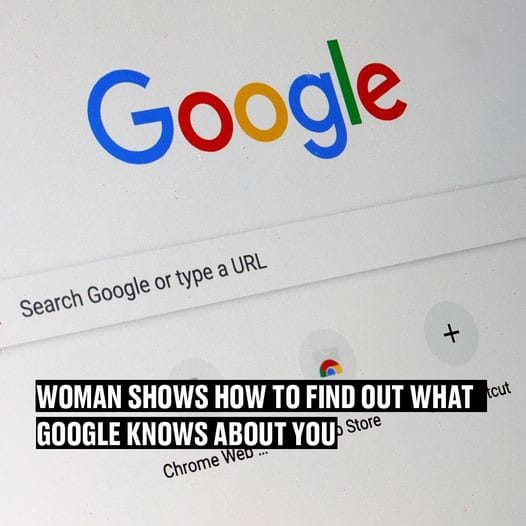In the modern digital landscape, the collection and utilization of personal data have become integral components of our online experiences. Among the tech giants that excel in this practice, Google stands out for its vast data repository. Yet, for most users, the extent of information that Google has gathered about them remains largely elusive. A recent TikTok video posted by user @yorgoandlea has gone viral, offering a step-by-step guide on how anyone can delve into the troves of data that Google holds about them.1
Google’s Archive: Discovering Your Data
The concise video demonstration, presented by @yorgoandlea, takes viewers through a straightforward process to unveil the information Google has collected about them. The journey commences with a simple query on Google’s homepage: ‘ad settings google’. By clicking on the link that corresponds to this query, users are prompted to log in if they aren’t already.2
The outcomes of this process are both enlightening and astonishing. A comprehensive list emerges, displaying a range of details that Google has meticulously archived. These include fundamental information such as age, gender, and even languages spoken. However, the intrigue deepens as Google’s insights into the user’s potential interests are unveiled. This personalized list suggests topics of interest such as ‘architecture’ and ‘audio equipment’, offering a glimpse into how the search engine perceives one’s preferences.
User Reactions and Insights
The reverberations of this video have been profound, transcending its concise duration. The TikTok clip has garnered hundreds of thousands of views, sparking a flurry of reactions that span from awe to trepidation. Users have voiced their astonishment at the sheer volume of data Google has compiled. One user exclaimed, “Oh God. I tried it – the amount of information!” Others have marveled at the uncanny accuracy of Google’s assessments, with one viewer describing it as “scarily accurate.” A notable subset of viewers has been prompted to disable data collection features, signifying a growing concern about digital privacy.
However, the narrative isn’t monolithic; some individuals’ experiences differ drastically from what the video suggests. A segment of users who followed the process found themselves faced with information that contradicted their own realities. For instance, one individual humorously pointed out, “Why does mine say I’m 44+ I’m literally 19.” Another shared a perplexing revelation, “Apparently I am 65-years-old and interested in Utah and reality TV shows.” These divergent encounters underscore the complexities and limitations of data interpretation algorithms.
Google’s Data Odyssey
Google’s data collection mechanisms span a wide array of information sources, including watched videos, location data, cookie tracking, and clicked advertisements. According to Google’s official stance, these practices are engineered to heighten user experiences by personalizing services based on individual preferences. The company elucidates that its primary objective is to optimize ads across its own services and on platforms that collaborate with Google for ad displays.
Crucially, Google asserts that it refrains from selling user data. Instead, the data is harnessed to fine-tune ad targeting while shielding personal information from advertisers. This distinction underscores Google’s commitment to striking a balance between personalized experiences and privacy concerns. For individuals who yearn for more control over their data, the option to deactivate ad personalization can be found on the same settings page where the collected data is displayed.
To conclude, the TikTok video uploaded by @yorgoandlea has provided a glimpse into the expansive data repository that Google maintains on its users. Beyond its viral impact, the video encapsulates the burgeoning interest and apprehension surrounding online privacy in an era where personal data has become a precious commodity. As individuals gain a clearer understanding of the data they generate and its ramifications, they are empowered to make informed choices about managing their digital footprints.
Sources
- “AI shows what Harry Potter characters should look like according to book descriptions.” Lad Bible. Katherine Sidnell. August 5, 2023.
- “Woman Posts TikTok Video Explaining Just How Much Google Knows About You.” India Times. Aishwarya Dharni. March 7, 2021.

Leave a Reply